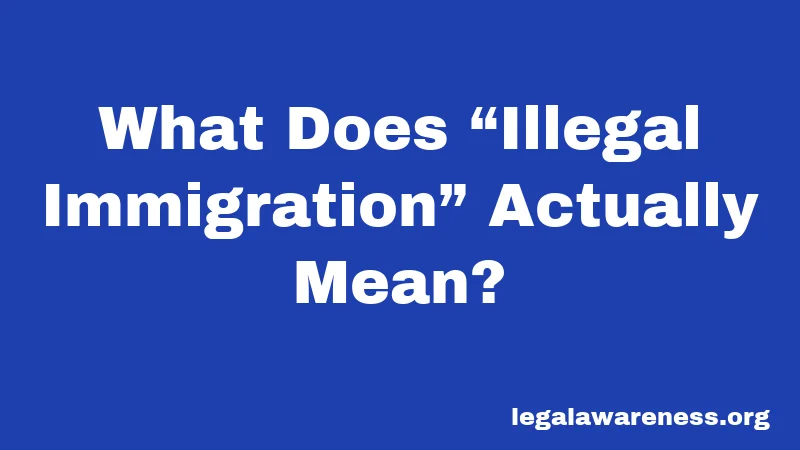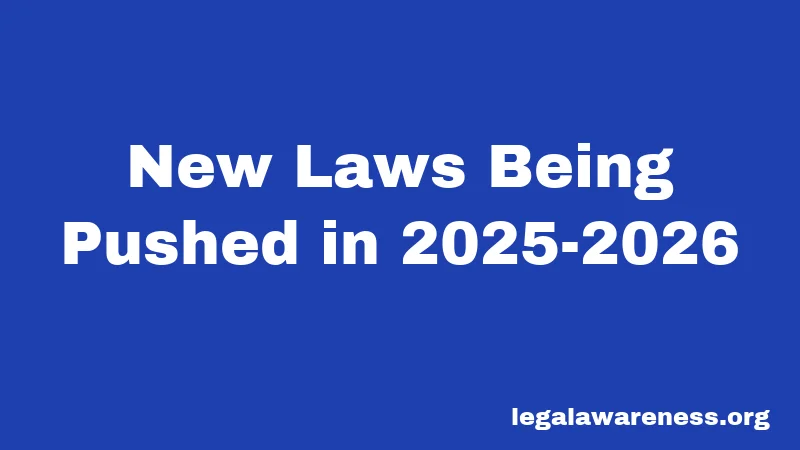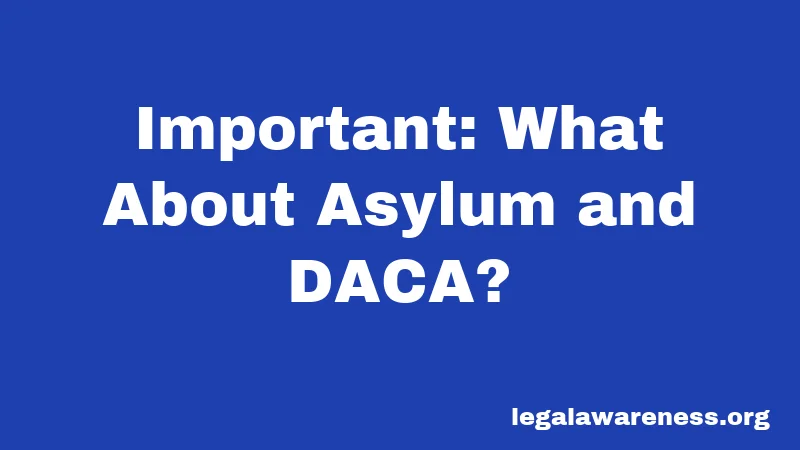Missouri Immigration Laws in 2026: Everything’s Changing Fast
Most people have no idea how strict Missouri’s immigration laws have become. Seriously. The state has been pushing for tougher rules lately, and things are shifting fast. Let’s break down what you need to know without all the confusing legal jargon.
Missouri wants to tackle immigration more aggressively than ever before. The state is creating new laws that affect how law enforcement works and what happens if someone is in Missouri without legal authorization. Some of these laws are already in effect. Others are still being decided. Either way, it’s important to understand what’s happening.
What Does “Illegal Immigration” Actually Mean?

Okay, let’s start simple. Immigration laws cover who gets to live and work in a state or country. When someone enters or stays in the United States without following the legal process, that’s what gets called unauthorized or illegal immigration.
Here’s the thing: immigration is complicated. Federal law handles most of it. But states like Missouri are now creating their own immigration laws too. Think of it like this. Traffic laws work the same everywhere, but individual states add extra rules. Immigration is similar now.
Missouri’s Current Immigration Laws (The Basics)
Employment Requirements
You’re gonna love how this works. Missouri has strict rules about hiring. If you work for a public employer in Missouri, that employer must verify you’re allowed to work in the U.S. using something called E-Verify. This is a federal system that checks if your information is correct.
Private employers in Missouri don’t have to use E-Verify right now. But that’s changing soon. New bills being considered would require private employers to verify work authorization too. If an employer hires someone unauthorized and doesn’t verify their status, they could face serious trouble. The penalties include fines and business license suspension.
Not sure what counts as proper work authorization? Basically, you need documents like a valid passport, green card, work visa, or other official papers showing the U.S. government allows you to work. Without it, you can’t legally be employed.
Driver’s Licenses and ID
Want to get a Missouri driver’s license? You’ll need specific documents. You have to prove your identity. You need your date and place of birth. You also need proof of your Social Security number and your Missouri home address.
The state doesn’t currently have a special mark on licenses showing citizenship. But some lawmakers want to change this. They’ve proposed adding symbols to show who is a U.S. citizen. This is still being debated.
Public Benefits
Here’s where it gets real. Under federal law, people without proper immigration documents cannot receive most public benefits. We’re talking about things like welfare, housing assistance, and food programs. There are exceptions for emergency care and certain health services. If you’re hurt or really sick, hospitals have to help you regardless of immigration status.
Pretty straightforward, right? It’s designed to make sure public money goes to authorized residents first.
New Laws Being Pushed in 2025-2026

Hold on, this part is important. Missouri is considering some major new immigration laws. These bills are moving through the legislature right now, and some might pass soon.
Illegal Entry Laws
Listen up. Several bills would make it illegal to enter Missouri if you don’t have legal U.S. immigration status. On your first offense, you could face a $10,000 fine and an order to leave the state. That’s serious money.
If you come back or commit a second offense, you’re looking at felony charges. Prison time could range from one to seven years. Some versions of the bills are even stricter. The consequences would actually increase with each violation.
Law Enforcement and Immigration
Missouri is changing how police handle immigration. New executive orders signed by the governor mean state troopers will start training with federal immigration agents. Once trained, certain officers will be allowed to enforce federal immigration laws themselves.
Police will also start collecting immigration status information from anyone arrested for crimes. This goes into a database. The goal is to help track and identify people in the state without legal status. Law enforcement gets more authority to investigate suspected immigration violations too.
The “Bounty Hunter” System
Okay, pause. This one’s probably the most controversial part. Some bills would create a $1,000 reward system. Here’s how it works: if you report someone to law enforcement and that person is found to be in Missouri without legal status, you get $1,000. Yes, really.
The bills also propose expanding who can become a “bounty hunter” related to immigration. People with certain licenses (bail bond agents, surety recovery agents) could apply to participate in this program. They’d be allowed to arrest people suspected of illegal entry with probable cause.
This idea has faced pushback. Some say it could pit neighbors against each other. Others worry people might falsely accuse someone just for the money. But supporters say it gives law enforcement another tool to identify unauthorized immigrants.
Wondering if this law is already in effect? It’s still being debated. It hasn’t passed yet, but it’s moving through the legislature.
Employer Requirements (Expanding)
New bills would expand employment verification requirements. Private employers would have to verify that workers are authorized to work. Employers who don’t follow this rule could face penalties. We’re talking about fines and even felony charges for serious or repeated violations.
One bill would require the state to maintain a registry of workers. Employers would have to report their findings. This is way stricter than current Missouri law.
Trespassing Laws
Some proposals would create a new offense called “trespass by an illegal alien.” This would apply to immigrants without permanent legal status who violate state law or county rules. Basically, it makes immigration violations part of the criminal justice system in new ways.
Wait, this sounds confusing? Let me break it down. Right now, immigration violations are mostly handled by federal authorities. These new laws would let state and local police treat unauthorized immigration as a state crime too. That means more people could face state-level charges, fines, and jail time.
Penalties and What Actually Happens
So what happens if you violate these laws? Let’s be specific.
For unauthorized entry into Missouri (under bills being considered): First offense brings a $10,000 fine and forced removal from the state. A second offense is a felony with one to seven years in prison.
For employers who violate employment verification rules: First violation means your business license gets suspended for 120 days. A second violation could result in a class D felony. That’s serious criminal charges, not just a fine.
For transporting or harboring unauthorized immigrants: The penalties range from fines to felony charges depending on your knowledge and intent.
Think of it like a traffic ticket, but way more serious. A traffic violation might cost you a few hundred bucks. Immigration violations could cost you tens of thousands of dollars plus prison time. The stakes are completely different.
Important: What About Asylum and DACA?

Not all immigration situations are the same. Some people in Missouri are here legally through asylum, DACA (Deferred Action for Childhood Arrivals), or other federal programs. These aren’t covered the same way as unauthorized immigration.
DACA protects people who came as children. They can live and work legally. Some bills being considered would still affect them, but the legal situation is different. If you have asylum status, you’re in a different category too.
Confused about which category you fall into? This is where you really need professional help. An immigration lawyer can tell you exactly where you stand.
Who Can Get Help?
Here’s where it gets helpful. Missouri has organizations that can help if you’re confused about immigration law or facing legal trouble.
Legal Aid of Western Missouri is a nonprofit based in Kansas City. They offer free or low-cost legal services to people who qualify, including immigrants. Legal Services of Eastern Missouri in St. Louis does similar work. The Missouri Immigration Policy Coalition provides advocacy and information too.
These organizations can answer questions about your specific situation. They can help you understand your rights. Many offer services in different languages.
Special Circumstances and Exceptions
Okay, this one matters. There are situations where normal immigration rules don’t apply exactly the same way.
Victims of human trafficking might qualify for a T visa. This is a special visa type for trafficking victims. Victims of crime might qualify for a U visa. If you’ve suffered abuse or trafficking, you have options that other unauthorized immigrants might not have.
Also, emergency medical care is always available. If you’re injured or having a medical emergency, hospitals must treat you regardless of immigration status. They can’t refuse care based on immigration or lack of legal status.
Children born in the U.S. are automatically U.S. citizens. This is different from their parents’ status. It’s important to understand that immigration status doesn’t automatically transfer between family members.
What Should You Do?
Stay informed, honestly. Immigration laws are changing. Read updates from official sources. If you’re an employer, start thinking about verification processes now. If you’re an immigrant or concerned about your status, talk to a lawyer before taking action.
Don’t rely on rumors or what friends tell you. Laws change, and your situation is unique. Getting accurate information matters. Contact organizations like Legal Aid of Western Missouri or a qualified immigration attorney.
If you’re considering entering a new state or changing your situation, do it before laws get stricter. Immigration law moves fast now, and waiting might make things harder.
Frequently Asked Questions
Is immigration a state issue or a federal issue? Both. The federal government controls most immigration law. But states like Missouri are now creating their own immigration-related laws too. Think of it like how states have their own laws alongside federal laws.
Can I get in trouble for helping an undocumented immigrant? It depends on what you do. Harboring or transporting someone you know is unauthorized could get you in legal trouble. Simple acts like friendship or providing emergency help have more protection. Ask a lawyer about your specific situation.
Do current DACA recipients fall under these new laws? Not the same way. DACA is a federal program that provides work authorization and protection. These people have legal status in a specific way. Some bills might still affect them, but they’re not “unauthorized” like others. Talk to a lawyer if this applies to you.
What about sanctuary cities in Missouri? Missouri currently prohibits sanctuary policies that limit cooperation with federal immigration requirements. Local communities can’t declare themselves sanctuaries for unauthorized immigrants under current state law.
If I was reported for the $1,000 reward, what happens? You have the right to an investigation, not just immediate arrest. The accused person can work with the court. False reports to law enforcement hotlines are illegal. You can’t make up accusations just to get the money.
Final Thoughts
Immigration law in Missouri is shifting. The state is pushing for stricter enforcement and more state-level involvement. Understanding these changes helps you protect yourself and your loved ones.
Know your rights. Get professional help if you need it. Stay informed about new laws as they pass. Missouri’s immigration landscape is changing, but you can navigate it with the right information.
If you have questions about your specific situation, talk to a qualified immigration attorney. They can tell you exactly where you stand legally. Don’t guess about something this important.
Now you know the basics. Stay safe, stay informed, and ask for help when you need it.
References
- Missouri Senate Bill 282 – Illegal Entry Provisions
- Missouri Senate Bill 72 – Border Security and Immigration Enforcement
- Missouri House Bill 120 – Immigrant Employment Registration
- FindLaw: Missouri State Immigration Laws
- Missouri Independent: Bills Cracking Down on Immigration (March 2025)
- St. Louis Public Radio: Missouri Immigration Bills (January 2025)
- Legal Aid of Western Missouri
- Legal Services of Eastern Missouri
